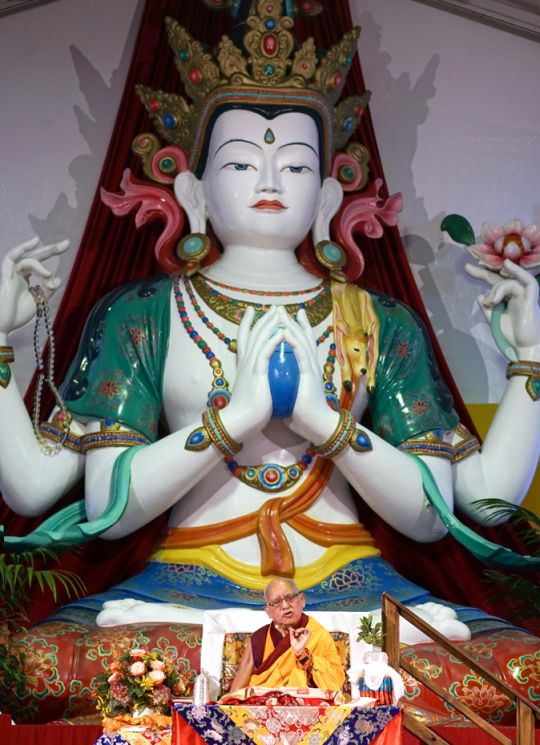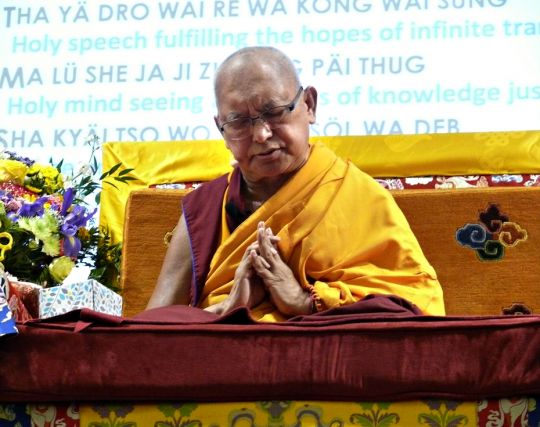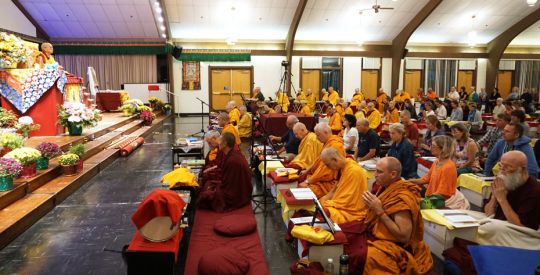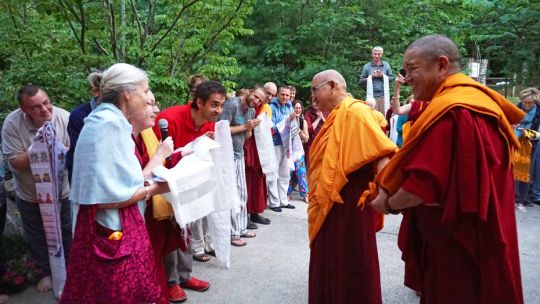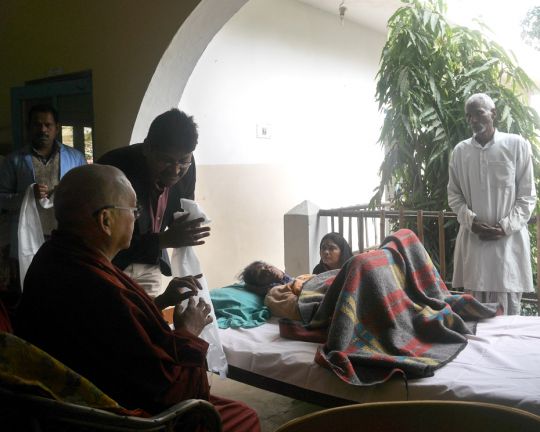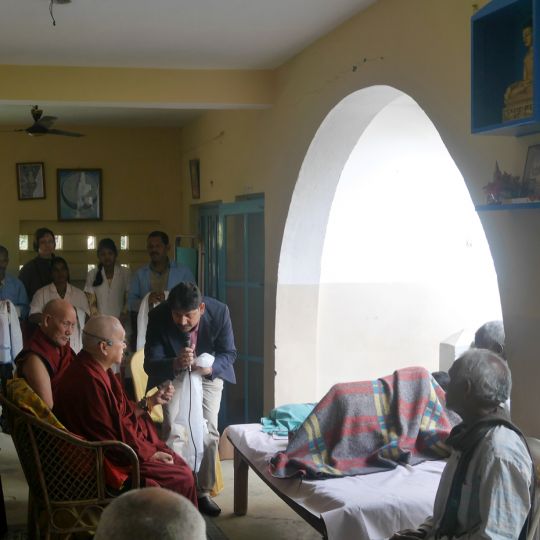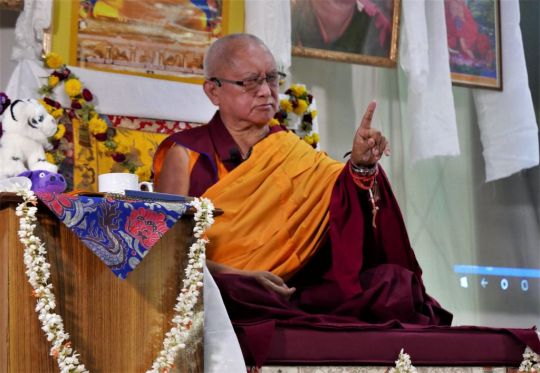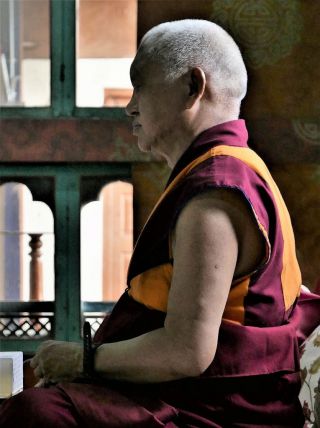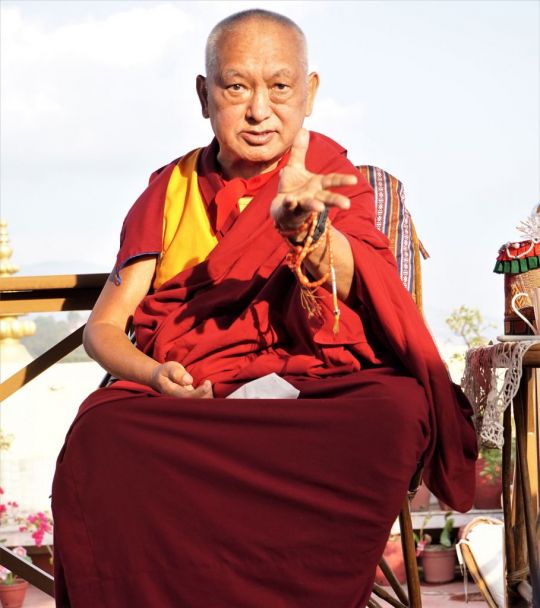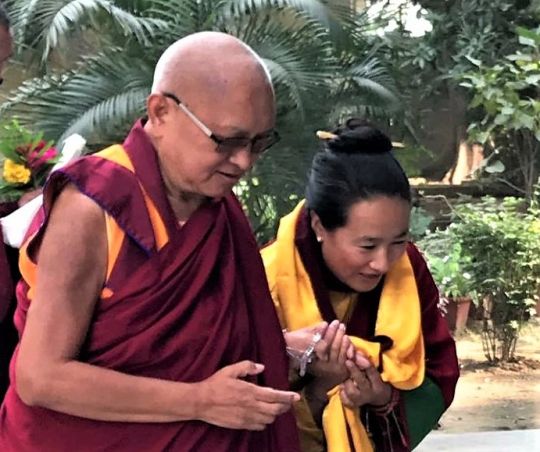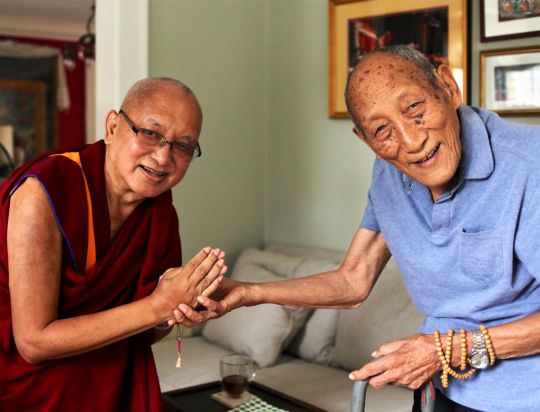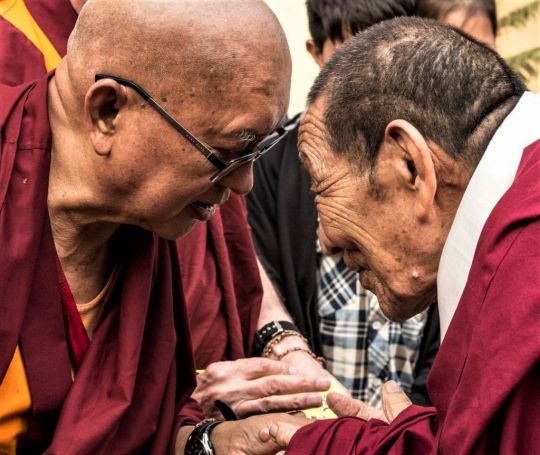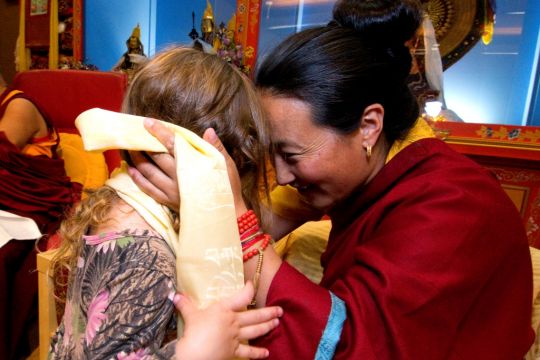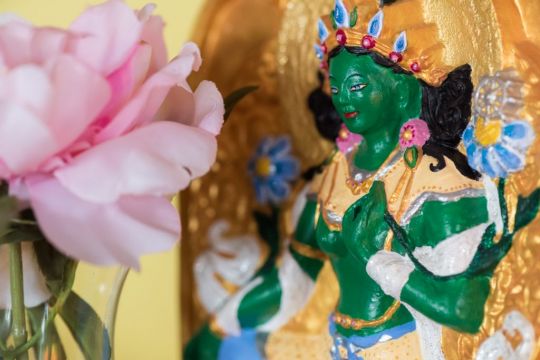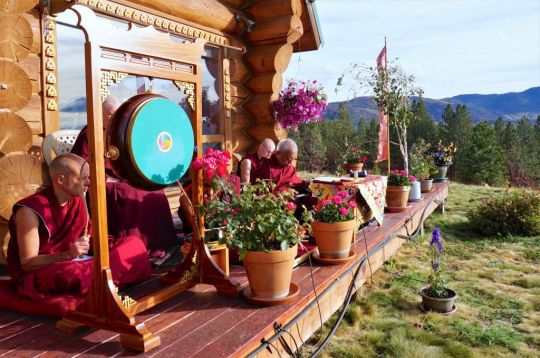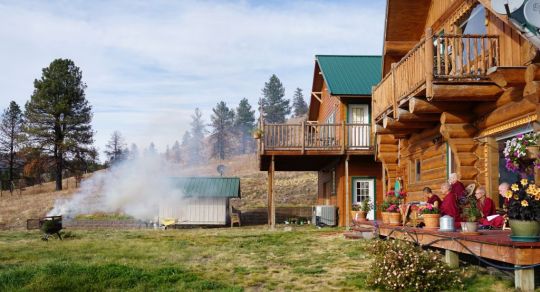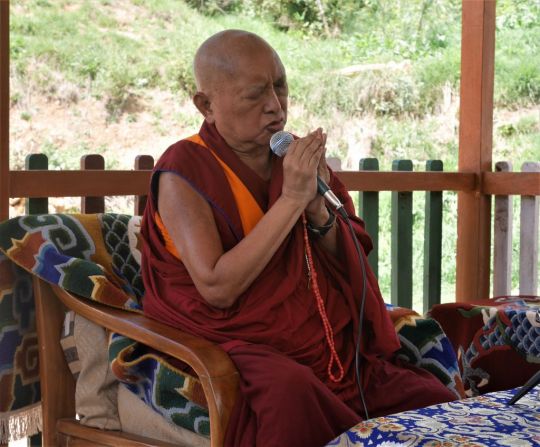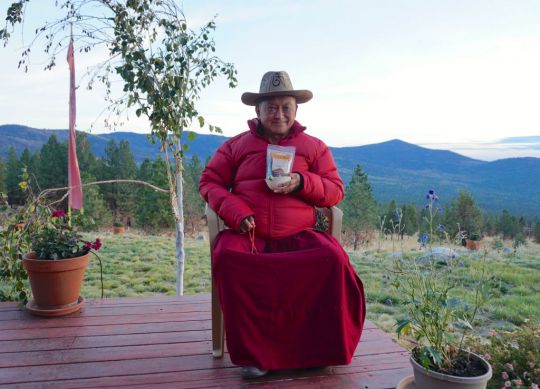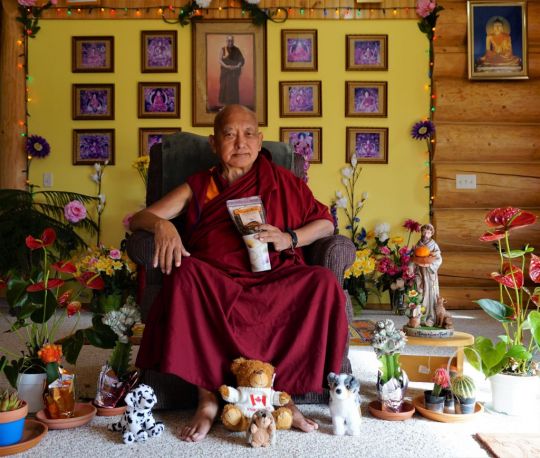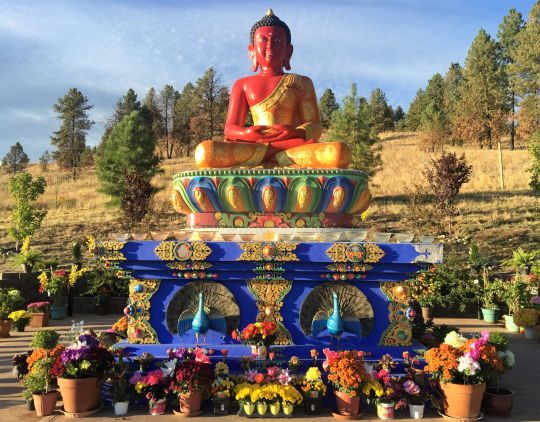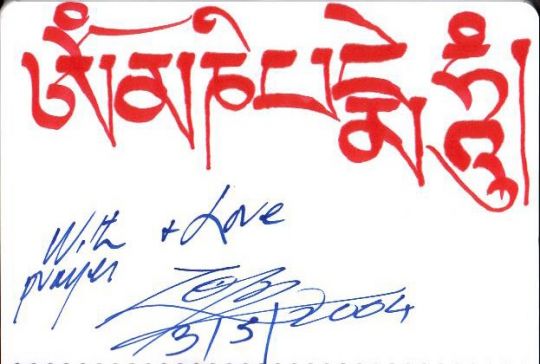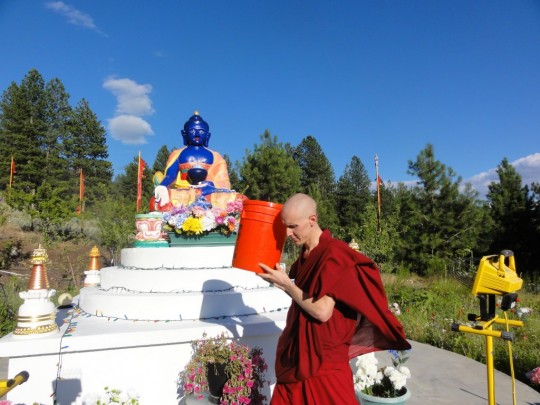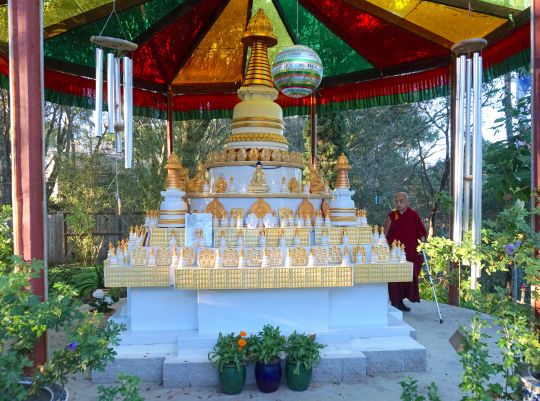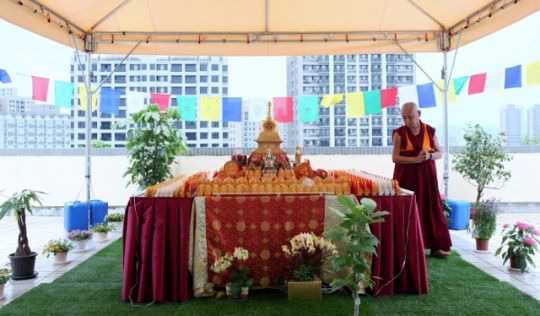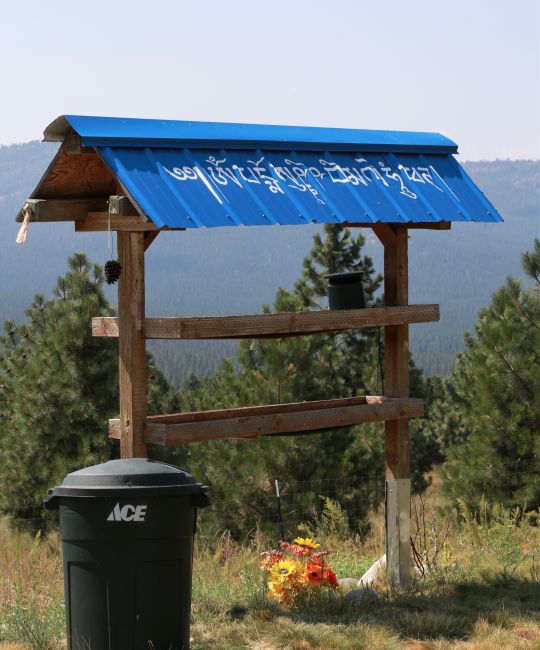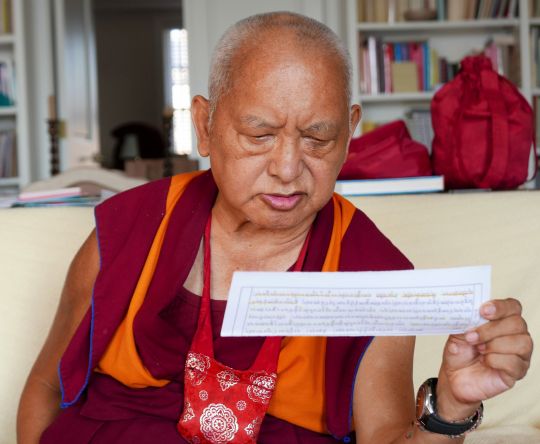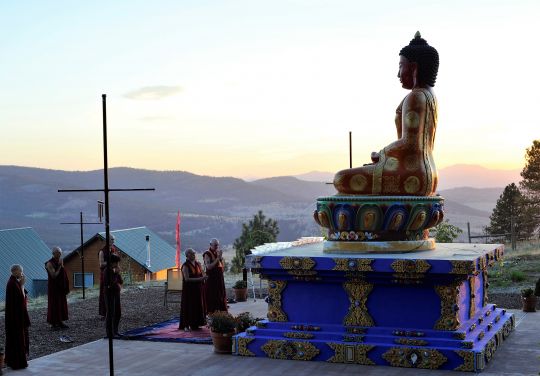I don’t have much to say, but when we make offerings, I always remember in particular the offerings you are making in Mongolia—in two rooms upstairs and downstairs also.
I just want to give numberless thanks to all of you for making the offerings. Every day you are making offerings and dedicating your life for all sentient beings to be free from the oceans of suffering of the six realms and to achieve full enlightenment. And also for the happiness of all sentient beings; where this happiness comes from is the teachings of Buddha. And also you dedicate for the teachings to last a long time and for His Holiness the Dalai Lama and all holy beings to live long.
It’s important to dedicate for FPMT Mongolia to be highly beneficial for sentient beings, and for all sentient beings to have perfect peace and happiness by generating loving kindness and compassion in the hearts of all sentient beings in this world and especially everyone in Mongolia.
Offering to the buddhas [with bodhichitta] is more beneficial than if you make other offerings as many as atoms in this universe. If you offer even one water bowl, one flower or one light, one Christmas light, with bodhichitta, then with every single offering—every single water bowl, light or flower—you collect more than skies of merit.
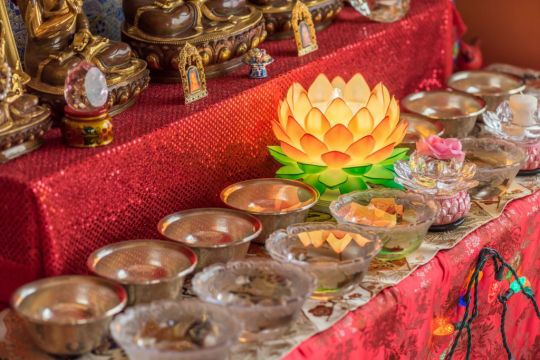
Offerings at Buddha Amitabha Pure Land, 2015. Photo by Chris Majors.
The great bodhisattva [Shantideva] said in A Guide to the Bodhisattva’s Way of Life:
Even the mere thought to benefit somebody is greater and more excellent than making offerings to all the buddhas. So to actually attempt to benefit somebody, then no question.
Since you are starting your day with the motivation to benefit numberless sentient beings then the benefit is much greater and you collect skies of merit from each and every light, water bowl, and flower offering. This means, for example, offering universes filled with water and so forth to the buddhas, or offering even the seven different kinds of jewels, diamonds, gold and so forth to the buddhas. So here this means even having the thought to benefit just one person, your mother, and also to benefit numberless sentient beings.
So please generate strongly the bodhichitta motivation before offering. It is unbelievable, unbelievable, unbelievable. This is just mentioning the motivation, so then when you actually do the offerings for sentient beings, then wow, wow, wow! No question. Hope to see you soon.
With much love and prayers,
Lama Zopa Rinpoche
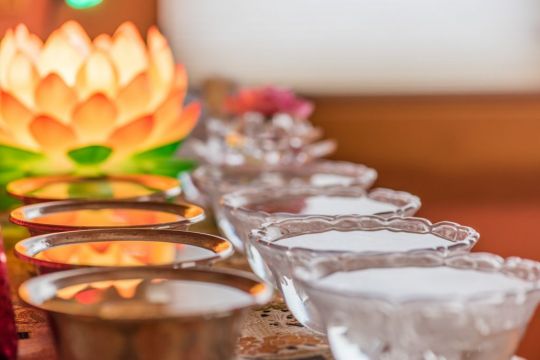
Water bowls at Buddha Amitabha Pure Land, 2015. Photo by Chris Majors.
Transcribed by Ven. Holly Ansett. Edited by Lama Yeshe Wisdom Archive under the title “Water Bowl Offerings.” With additional minor edits for posting by Mandala.
Lama Zopa Rinpoche is the spiritual director of the Foundation for the Preservation of Mahayana Tradition (FPMT), a Tibetan Buddhist organization dedicated to the transmission of the Mahayana Buddhist tradition and values worldwide through teaching, meditation, and community service.









